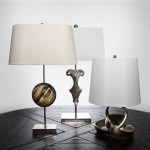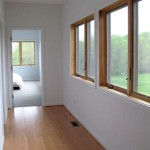Interior Design Salary New York City
New York City, a global hub for design and innovation, offers a dynamic and competitive landscape for interior designers. The city's thriving real estate market, coupled with a discerning clientele seeking high-end aesthetics, creates a strong demand for skilled professionals. Understanding the salary expectations for interior designers in this demanding market requires considering various factors that influence compensation.
Experience Level
Experience plays a crucial role in determining an interior designer's earning potential in New York City. Entry-level positions typically offer lower salaries compared to senior roles. Recent graduates or those with limited professional experience may start with annual salaries ranging from $50,000 to $70,000. As designers gain experience and build a portfolio showcasing successful projects, their earning potential increases significantly. Mid-career professionals with 5-10 years of experience can expect salaries between $75,000 and $120,000. Senior designers and those with established reputations and extensive experience can command salaries exceeding $150,000, with some top earners reaching $200,000 or more annually.
Type of Employer
The type of employer also impacts an interior designer's salary in New York City. Large, prestigious design firms often offer competitive salaries and benefits packages. Boutique firms or independent design studios may offer slightly lower starting salaries but often provide opportunities for faster career advancement and greater creative control. Working for a large architectural or construction company may offer stability and opportunities to collaborate on large-scale projects. Self-employed designers have the potential to earn significantly more, but their income can fluctuate depending on project availability and client acquisition.
Specialization and Skills
Specialization within interior design can influence salary expectations. Designers specializing in high-end residential projects or luxury hospitality design often command higher fees than those specializing in commercial or retail spaces. Specific skills, such as proficiency in computer-aided design (CAD) software, knowledge of sustainable design practices, or expertise in specific historical periods, can also increase earning potential. Holding certifications, such as LEED accreditation (Leadership in Energy and Environmental Design) or NCIDQ certification (National Council for Interior Design Qualification), demonstrates professional competency and can positively impact salary negotiations.
Location within New York City
While New York City is generally considered a high-cost-of-living area, specific neighborhoods can influence salary expectations. Design firms located in Manhattan's prime business districts, such as Midtown or SoHo, may offer higher salaries to compensate for the higher costs of operating in these areas. Designers working in outer boroughs, such as Brooklyn or Queens, may experience slightly lower salaries, reflecting the lower overall cost of living in these areas. However, the increasing popularity of these boroughs as design hubs is gradually narrowing the salary gap.
Negotiation and Networking
Strong negotiation skills are essential for interior designers seeking to maximize their earning potential. Researching industry salary benchmarks and clearly articulating one's value proposition to prospective employers can lead to favorable compensation packages. Networking within the design community, attending industry events, and building relationships with other professionals can provide valuable insights into salary trends and potential job opportunities.
Education and Continuing Professional Development
A strong educational foundation lays the groundwork for a successful interior design career. A bachelor's degree in interior design or a related field is typically required for entry-level positions. Graduates from prestigious design schools or programs may have an advantage in the competitive job market. Continuing education through workshops, certifications, and professional development courses can enhance skills and demonstrate a commitment to staying current with industry trends, which can positively influence salary negotiations.
Portfolio and Project Success
A well-curated portfolio showcasing successful design projects is a crucial tool for interior designers seeking to secure high-paying positions. The portfolio should demonstrate creativity, technical proficiency, and an understanding of design principles. Highlighting projects that have achieved recognition through awards or publications can further enhance a designer's credibility and earning potential. Demonstrating a track record of successfully managing projects within budget and meeting client expectations can also positively impact salary negotiations.

Careers In Interior Design The Ultimate Guide Nyiad

The Best U S Cities For Interior Designers Joybird

How Much Do Interior Designers Earn In Jd Institute Of Fashion Technology

21 74 Hr Interior Design Staging Jobs In New York

Interior Designers

Interior Designers

Interior Designers

New York School Of Interior Design Overview

Interior Designers
Interior Designer Salaries What Can You Earn With The Ncidq Certificate








